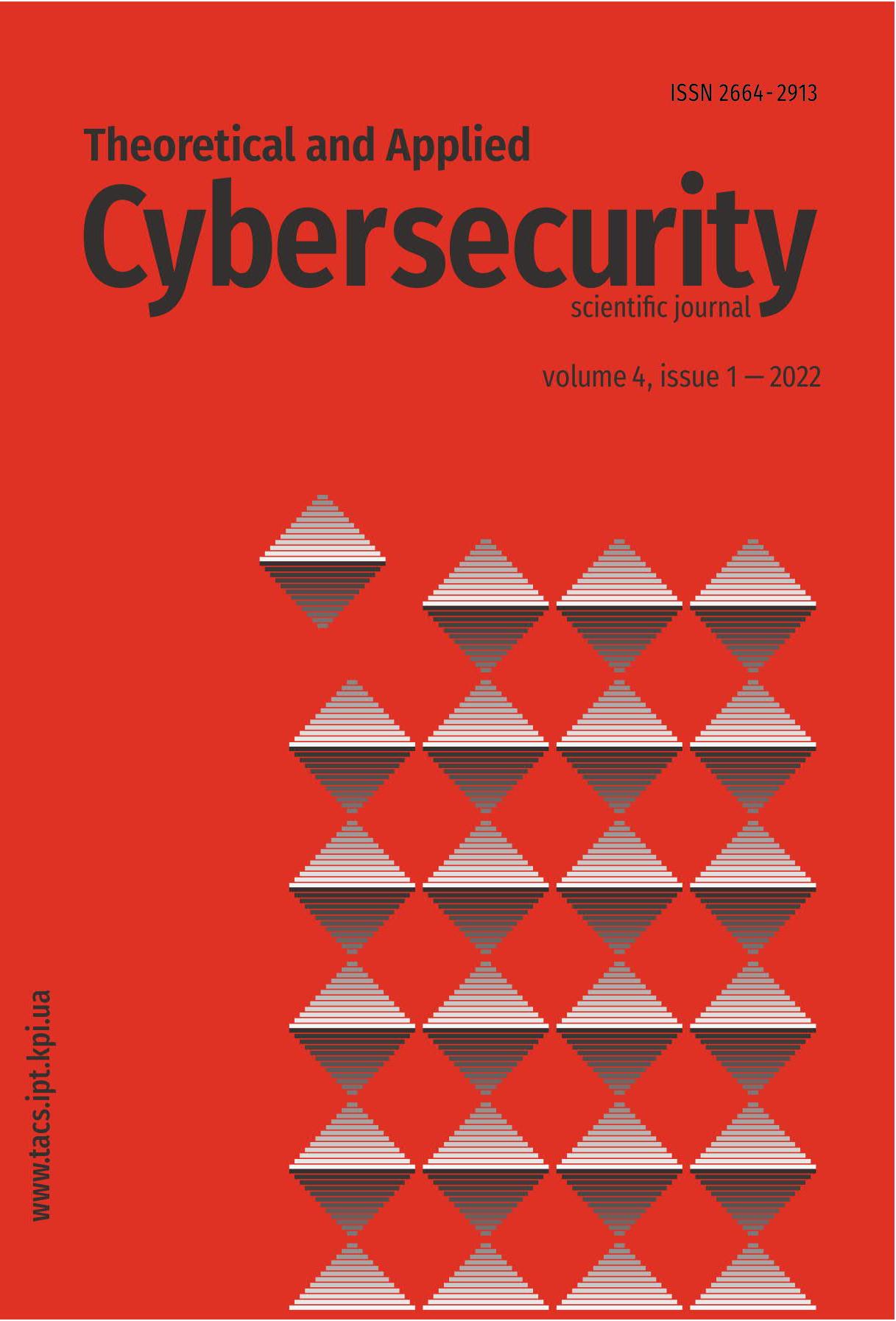Estimating probable electoral losses using gaming approach in the conditions of information countermeasures
DOI:
https://doi.org/10.20535/tacs.2664-29132022.1.274133Abstract
The task of assessing the destructive effects on information is considered public safety on the example of electoral losses in the process of information opposition. To find a solution to the above problem, it is proposed a non-linear model based on process modeling pre-election races. Based on similar studies, it was the impact of destructive informational influences on certain security is considered layers of society. A case study where an adversary advances its narratives for capture of a part of society in its information field, as well as his keeping under its influence at the expense of existing agents. For this purpose he involves influence agents who act in two groups. For the specified situation it was the process of transition of the electorate to the information environment is simulated opponent.
The following groups of objects were considered in the model: our agents, which functionally, they only oppose the agents of the adversary, groups of society, divided according to the possible impact on them, and two groups of agents enemy, each of which can change as a result of losses and necessity keeping under its influence members of the social groups that reacted positively on the information narratives of the adversary. As a result, the simulation was carried out assessment of probable electoral losses, which provides grounds for determination optimal counteraction to destructive informational influences.
Downloads
Published
Issue
Section
License
Authors who publish with this journal agree to the following terms:
Authors retain copyright and grant the journal right of first publication with the work simultaneously licensed under a Creative Commons Attribution License that allows others to share the work with an acknowledgement of the work's authorship and initial publication in this journal.
Authors are able to enter into separate, additional contractual arrangements for the non-exclusive distribution of the journal's published version of the work (e.g., post it to an institutional repository or publish it in a book), with an acknowledgement of its initial publication in this journal.
- Authors are permitted and encouraged to post their work online (e.g., in institutional repositories or on their website) prior to and during the submission process, as it can lead to productive exchanges, as well as earlier and greater citation of published work (See The Effect of Open Access).

